In ‘Searching for Patty Hearst,’ Roger D. Rapoport Draws on His Extensive Reporting on the Case
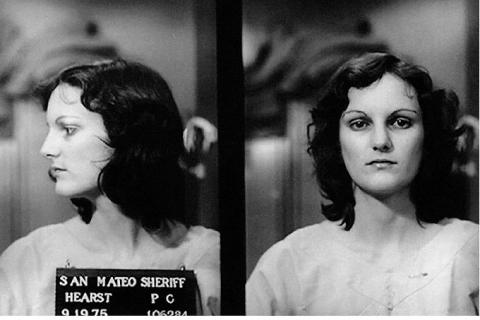
October 4, 1971
Steve Weed’s fever was 102.4. Three days earlier, his doctor had diagnosed pneumonia and told him to cancel all appearances on the tour for Is The Library Burning, his new Random House book about the student power movement. Exhausted after a sleepless night, he had driven across the Bay Bridge on an Indian summer morning. Traffic slowed on this 80-degree day after a broken-down apple truck spilled crates of Granny Smiths across the roadway. By the time he arrived at St. Jean’s, his audience had been chilling for 20 minutes.
“For me,” he said after pausing for a sip of water to soothe his sore throat, “the ’60s actually began in 1959 when I fell in love with the University of Michigan’s Dean of Women.”
While Steve continued, 16-year-old Patty Hearst, sitting in the back row with her best friend Megan Walworth, closed her eyes.
“You cool,” said Megan.
Patty blinked, took a deep breath and whispered:
“Oh no, I’m in big trouble.”
“He’s so old,” said unsmitten Megan.
“He’s perfect,” she said as Steve continued.
Megan shook her head and began replying until a nun shushed her.
“We’d better chill,” said Patty.
“I was just head over heels for a woman in her late ‘60s,” continued Steve.
By now two of the nuns were whispering to each another. They listened nervously as he reminisced about his campus heartthrob, Dean Deborah Bacon:
“For more than 30 years she ruled women on campus as if they were all her daughters. Dean Bacon was famous for her patented brand of in loco parentis, a phrase I assume you all know from your Latin class. If a young woman failed to make it home in time for a dorm curfew, this administrator made sure that she was locked out for the night.
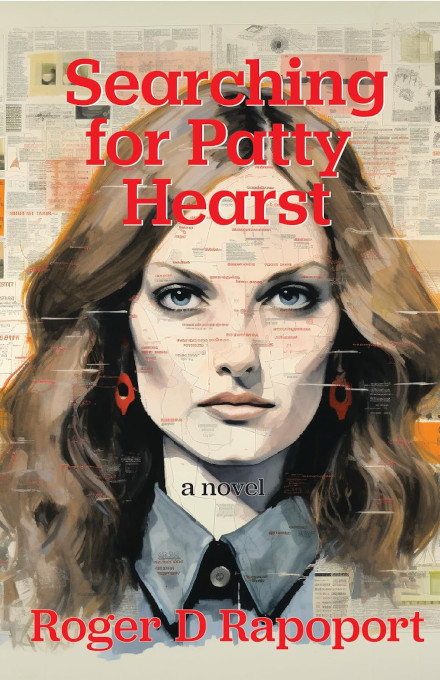
“She was famous for her lectures about the hidden dangers of tight sweaters and short skirts, anything hemmed above the knee.
“Dean Bacon’s worst fears were validated in 1954 when Michigan became home of the nation’s first panty raid. A mob assembled outside Stockwell Hall chanting: “We want panties; we want them now.”
That was when Sister Mary Catherine Francis decided to call off Steve’s appearance. As the lights were dimmed, he was escorted from the stage to the students’ dismay.
“That’s so bogus,” Megan told Patty as the students filed out.
In the hallway, Steve loudly offered to continue his story at another venue:
“I’m speaking tonight at City Lights in San Francisco. Feel free to join me there where we can resume our conversation.”
By the time Steve arrived at the North Beach bookstore, Patty had already finished the first chapter of his new book.
The room was filled with rapt St. Jean’s students eager to learn more about the ‘60s from this controversial author. His book was a kaleidoscope of campus protest from coast to coast. Steve continued his Dean Bacon story where he’d left off, in the upstairs reading room—a shrine to Kerouac, Ginsberg, Ferlinghetti and the rest of the Beats.
“The groundbreaking panty raid began on a warm night beneath the windows of Stockwell Hall.
‘“Panties, we want panties,’” shouted the men to the beat of a drum borrowed from the marching band.
“When the first woman tossed her underwear from the sixth floor, a roar went up that could be heard across campus. One by one, others joined in as the men held up their treasure for the benefit of Michigan Daily photographers.
“Dean Bacon, on the scene before the first undergarment was airborne, quickly called the cops. She dispatched housemothers who ran up and down the corridors banging on doors in a vain attempt to take control. Finally, when someone pulled a fire alarm, some of the women emerged in their nightgowns, including several with their hair rolled up in curlers.”
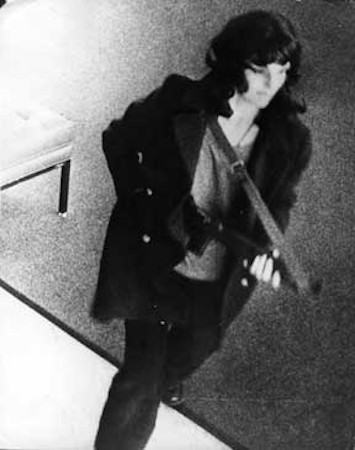
“‘DO SOMETHING,’“ Dean Bacon screamed at the police who didn’t know if any laws were being violated.”
One of the young women in her St. Jean’s uniform, white blouse, gray blazer, blue skirt and penny loafers, raised her hand.
“Mr. Weed.”
“Please, it’s Steve.”
“Steve, help us out. Were the cops enjoying this spectacle?”
“They were speechless.”
“Far out,” said the mesmerized student.
“Like the young men, Dean Bacon was frustrated. A cop handed her a megaphone as she scanned the women looking out their dorm windows:
“‘I am so ashamed of all of you. Tomorrow your parents, who have sacrificed everything, are going to be calling my office. And what exactly do you think I’m going to say?
“‘Oh hello, Mrs. Clink…. Susie threw her panties out the window. But they were wearing thin. She didn’t part with any of her good panties. It’s really all for the best. If she were in a car accident, you wouldn’t want her going to the hospital where a young resident would examine her in awful underwear.’”
Another student raised her hand.
“What did you love about Dean Bacon?”
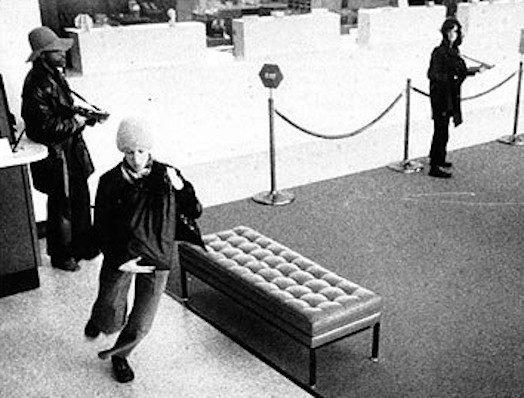
“Five years later, I inherited a file from a previous Michigan Daily editor, Peter Eckstein. Paging through, I found interview notes from women pinpointing how Dean Bacon had written letters to parents of white women dating interracially. Although we didn’t have the actual letters, Eckstein knew that some of these women had been forced to withdraw from school by their racist parents.
“After many months of trial and error, I found one of these victims. She sneaked into her mother’s bureau drawer and discovered a letter from the Dean. I took it to the campus administration with the story we were ready to publish.
“Deborah Bacon resigned the very next day. Our story was picked up by the New York Times, and for me, it was the first step to a dream career.”
“Her power grew from the fact that no one had the courage to challenge her authority. She assumed the kind of power we see far too often in this country, power that flourishes secretly behind closed doors. This sort of bigotry was at odds with the very purpose of a university, teaching students how to think independently, to never let anyone steal your freedom.”
“Or your panties,” said Patty’s friend Megan Walworth. “This must have been terrifying for the women, a sort of prelude to rape? Wasn’t she right to battle that?”
“No question, it was a horrible situation, inexcusable. Those men were engaged in the worst kind of sexual harassment. The Michigan Daily editors deplored it. A faculty petition gathered over 1,000 signatures and the administration threatened to expel anyone who engaged in this kind of behavior again.”
“The ‘50s were all about instant self gratification,” said Megan. “Women were victimized in so many ways.”
“You’re right. In the ‘60s, we tried to change that, to make sure women were always able to realize their full potential.”
“But wasn’t it Student Nonviolent Coordinating Committee’s Stokely Carmichael who said, ‘The only position for women in the movement is prone?’”
“He couldn’t have been more wrong. I know that some of you here tonight will become exemplary leaders. Let’s face it, you come from a world of privilege, and I know that most of you will join the struggle to help those who grew up without all the advantages you enjoy.
“What went wrong at your own school today was an example of what we are all fighting for. Never let anyone dictate what you should think or how you should handle your own lives.”
“Not even you,” said Megan.
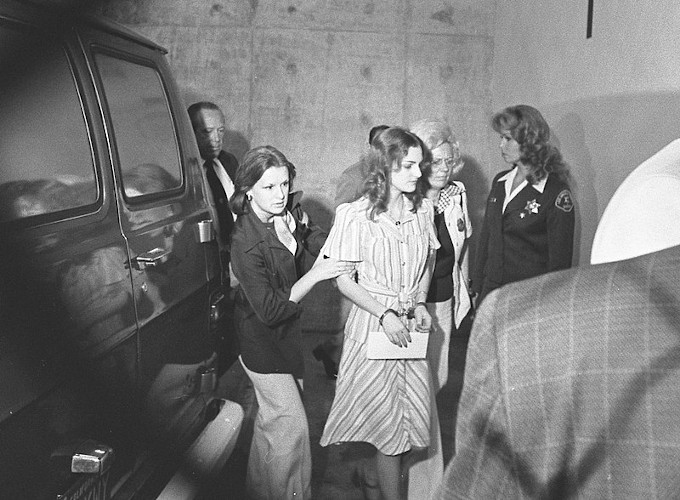
“The one thing I know for sure is that none of us have all the answers. That’s what I love about this bookstore. It’s a place where so many great ideas collide and perhaps out of that synthesis, we can teach ourselves how to avoid some of the mistakes leading to avoidable conflict and bloodshed. Together we need to revolutionize this country. Hopefully that can happen peacefully.”
Waiting in line after the talk, Patty watched Steve greet each customer like old friends.
When it was her turn, he asked if the book was a gift:
“It’s for my mother’s birthday. She’s a University of California Regent. She’ll absolutely hate it.”
“What’s her name?”
“Catherine.”
Steve picked up a pen and looked up at Patty.
“May I inscribe this to her as Cathy?”
“No, it’s Catherine.”
Steve thought for a second and then wrote:
Dear Catherine: Your wonderful daughter tells me that you are a UC Regent. That’s great. I for one would like to see more women on the board. How about asking Governor Reagan to nominate Angela Davis? Hope to meet you soon.
With my admiration.
Steve Weed.
As she picked up the book Patty left a note:
Steve, thank you for not backing down this afternoon and inviting us all here tonight. I’d love to come to your next talk. Please give me a call and let me know when I’ll have another chance to catch up with you. My number is 555-0001. I’m psyched about seeing you again.
Very Truly Yours,
Patty Hearst
This is an excerpt from the new book, Searching for Patty Hearst: A True Crime Novel, by Roger D. Rapoport. It’s published here with permission.
Author Bio:
Award-winning film producer, publisher, author, and investigative journalist Roger Rapoport has covered the Patty Hearst story for half a century. He has written for the Chicago Tribune, Wall Street Journal, Miami Herald, Boston Globe, Dallas Morning News, San Jose Mercury News, The Independent (UK) and the San Francisco Chronicle. His magazine articles have been published in Harper’s, The Atlantic, Esquire and Mother Jones.
Photo Credits: Wikipedia Commons; Wikipedia Commons; UCLA Library Archive (Wikipedia Commons).































































































































































































































































































































